We tried Oppo Find N and this is already a signal. In fact, the hands-on tend to anticipate the release of the devices on the market, which gives us hope for the arrival in Italy of the first Oppo leaflet. Which is not the first. Technically this is the sixth foldable developed by the Chinese company but the only one, at least for now, to have been considered actually mature and ready for the shelves of online and physical stores.
Our test, which lasted about 30 minutes, confirmed some of our initial impressions. During the official presentation, the one with which Oppo had announced the release on the Chinese market, this folding smartphone seemed to us well thought out, well built and designed to make life easier for users. On balance it seems to be really like that but there are other aspects that surprised us and that we would like to share with you.
Oppo Find N: preview of the first Oppo leaflet
The first thing that catches the eye are undoubtedly the size: Oppo Find N is really compact. A sensation that is amplified by the presence of curved edges that increase its ergonomics, so as to allow you to use it easily with one hand. The frames are then contained and you only need an inch to reach every corner of the 4.9-inch external display, display with which you can do everything. In fact, if you want you will never actually need to open the device.
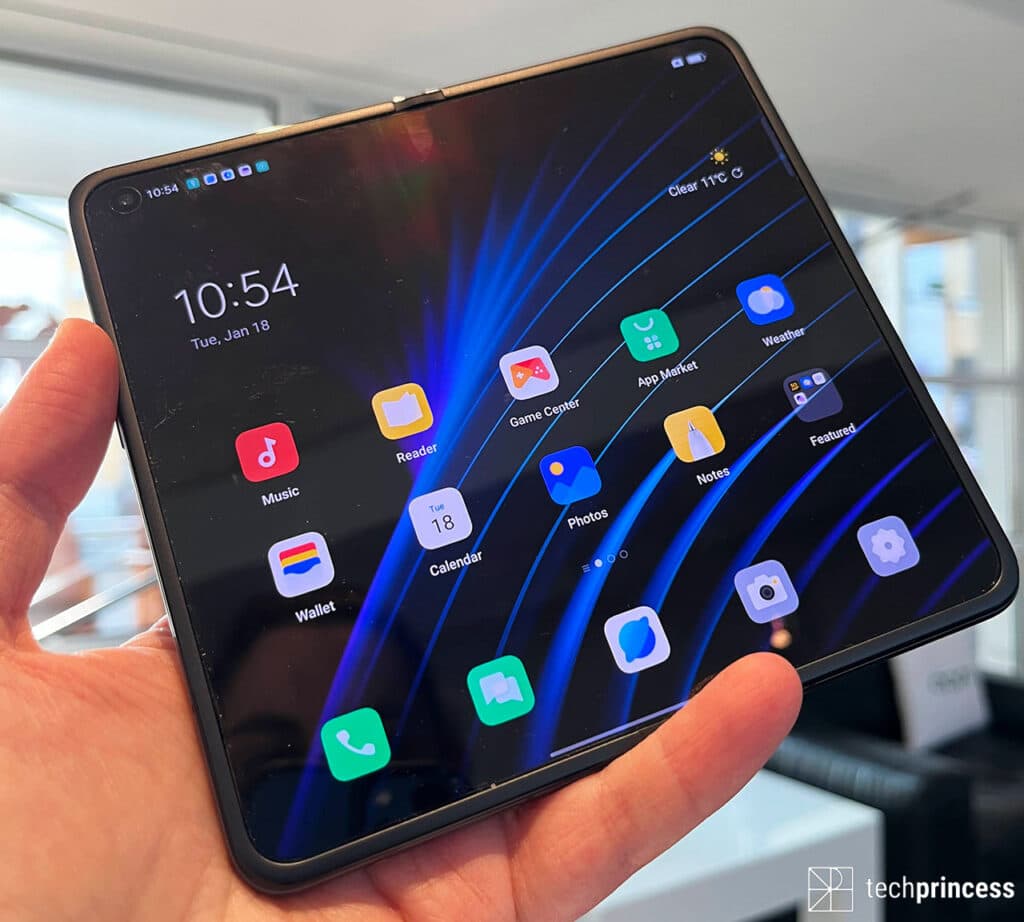
So why do it? Well, because inside we have a 7.1-inch display with dynamic refresh rate (1 to 120 Hz), made up of 12 different layers, the last of which is thinner than what the competition offers today. However, this does not mean less resistant. The solution found by Oppo – and this is the second element that pleasantly struck us – minimizes the phantom crease. You hardly see it, you can hardly hear it using the screen.

The merit, however, is also of cerniera Flexion Hinge, with a mechanism inspired by the elbow and the movement of our arm. The display then does not close brutally in half, as if you were unfolding a sheet of paper, but provides a teardrop design that avoids the formation of the fold and perfectly blocks the two ends of the smartphone.
We saw Oppo Find N close by holding a sheet in the middle, with the piece of paper being lifted without the Chinese foldable letting go. Thrilling moments for us but an interesting test of “strength” for Oppo’s foldable.
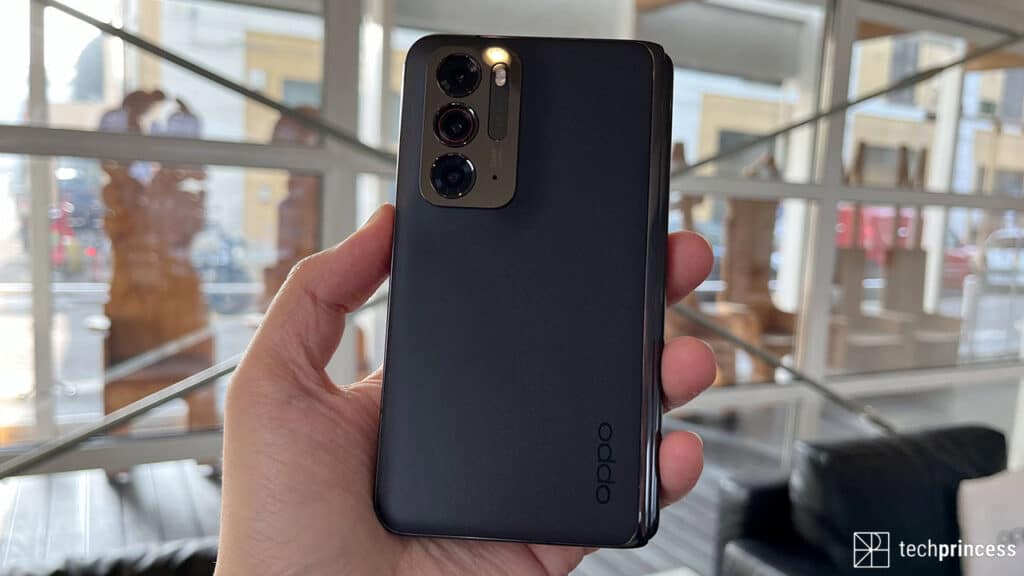
We also liked the finish of the back cover, opaque to not retain fingerprints but resistant thanks to the presence of Gorilla Glass Victus; the plate of the photographic module instead is in ceramic for a truly premium overall effect.
Speaking of cameras, we have 5 of them. On the back we have the 50 megapixel Sony IMX766 main sensor, a 16 megapixel ultra-wide lens and a 13 megapixel telephoto lens while both the internal and external displays house a front camera.
We did not have the opportunity to analyze in detail the performance of the sensors but on the other hand we appreciated the software features, linked precisely to the fact that this smartphone folds.
First of all the hinge allows Find N to remain in balance with an angle between 50 ° and 120 °, an element that transforms it into tripod of himself and which can be useful for photos, videos (even timelapse) and calls. Moreover it “self-holds” even vertically so you can take photos and videos in this position too.
If you want to take a snap a selfie you will have the opportunity to use the rear camera by pressing a button and rotating the smartphone to use the rear camera instead of the front one; there is a similar function also for photos of other people, with the external screen becoming a small preview for your subject at that point.
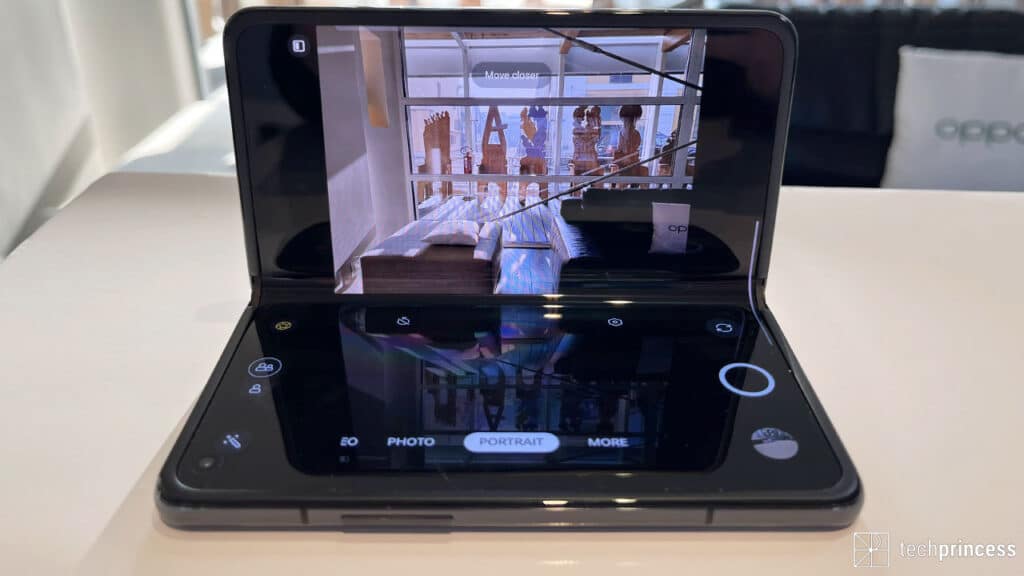
These camera features are an example of Oppo’s attention to software. We have in fact the FlexForm thus, when Find N is folded about 90 °, the camera can show above the viewfinder and below the controls. Or, again, the Notes app can use the lower half for the keyboard, which is split into two parts – one on the right and one on the left – to make it more comfortable for your thumbs. They seem like small precautions but in reality they facilitate the use of a device of this kind.
Multitasking is also an essential element, with Oppo’s software, the ColorOS 12, which allows you to place two applications side by side with a gesture: just open the first app, swipe two fingers on the screen from top to bottom and select the second. Then using the side bar you can add 2 more floating windows for a total of four open applications. Really not bad.
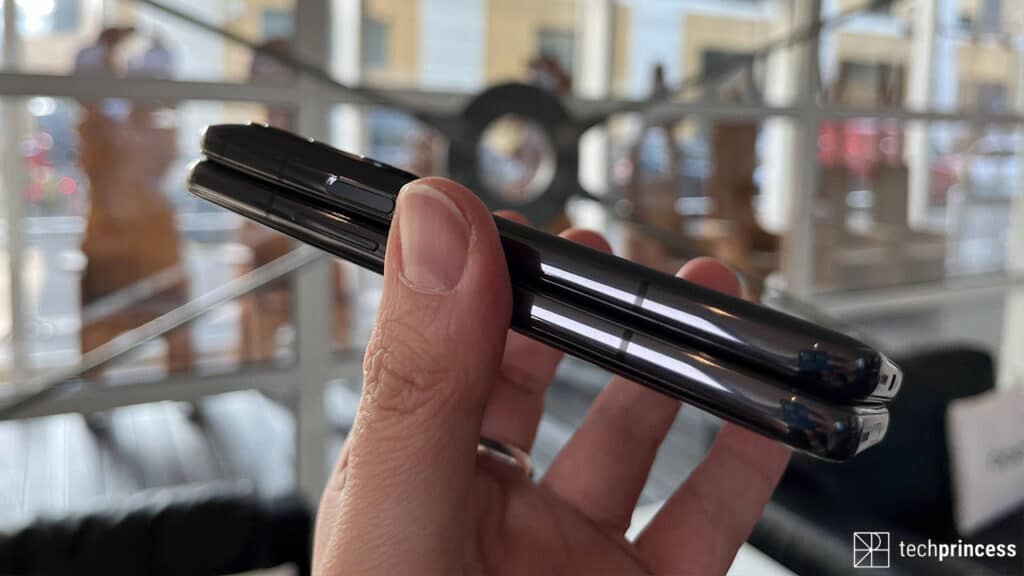
Overall we liked Oppo Find N. Of course we postpone the final judgment to the actual test of the product to understand how it will behave in everyday life but the general impression is that the first leaflet of the Asian company is actually a mature, solid product, well thought out both from a structural and software point of view. In addition it is characterized by a compact format that facilitates portabiity and use.
Oppo Find N preview: yes, but when does it come out? And how much is it?
At the moment there is still no information relating to the Italian market, neither regarding the release of Oppo Find N nor regarding the price. It made its debut in China on 23 December and everything suggests that in the coming weeks we will also see it in Europe and Italy but to be sure and have precise data we should wait for the official announcement.






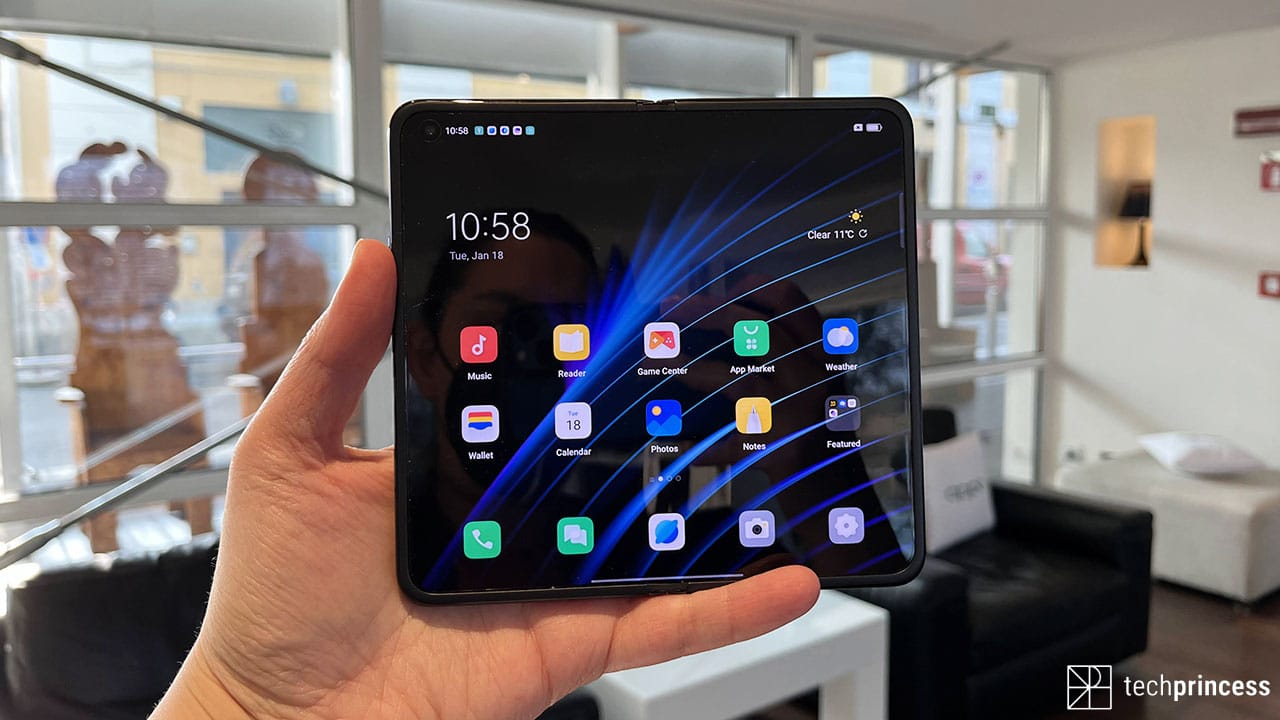



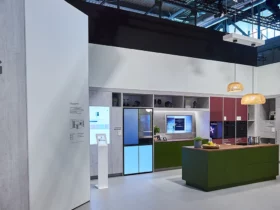

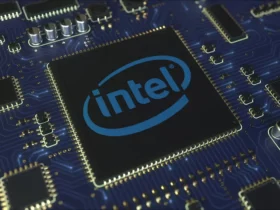
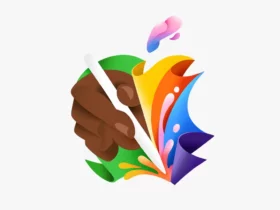
Leave a Reply
View Comments